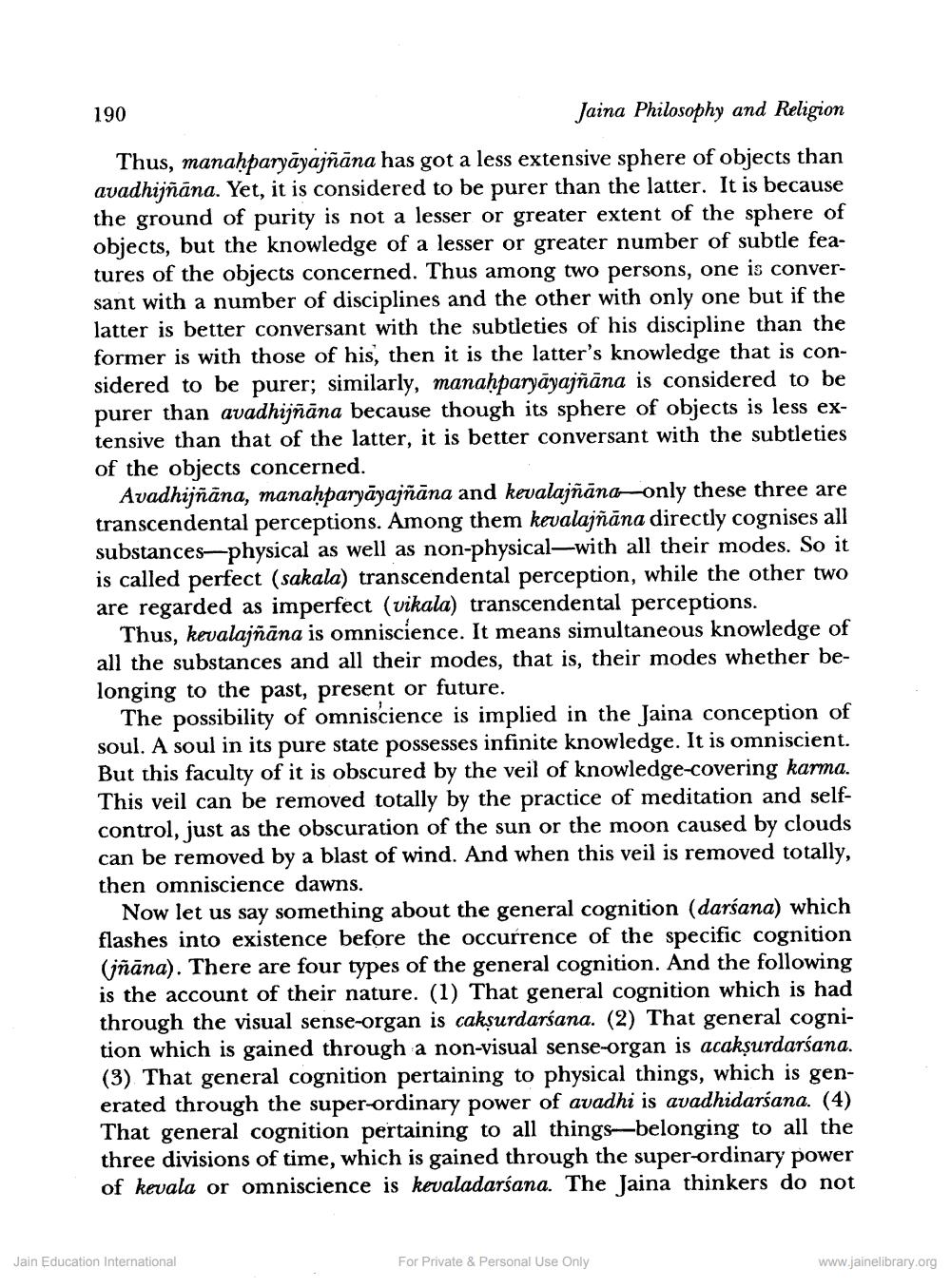________________
Jaina Philosophy and Religion
Thus, manaḥparyāyajñāna has got a less extensive sphere of objects than avadhijñāna. Yet, it is considered to be purer than the latter. It is because the ground of purity is not a lesser or greater extent of the sphere of objects, but the knowledge of a lesser or greater number of subtle features of the objects concerned. Thus among two persons, one is conversant with a number of disciplines and the other with only one but if the latter is better conversant with the subtleties of his discipline than the former is with those of his, then it is the latter's knowledge that is considered to be purer; similarly, manaḥparyayajñāna is considered to be purer than avadhijñāna because though its sphere of objects is less extensive than that of the latter, it is better conversant with the subtleties of the objects concerned.
190
Avadhijñāna, manaḥparyāyajñāna and kevalajñāna-only these three are transcendental perceptions. Among them kevalajñāna directly cognises all substances physical as well as non-physical-with all their modes. So it is called perfect (sakala) transcendental perception, while the other two are regarded as imperfect (vikala) transcendental perceptions.
Thus, kevalajñāna is omniscience. It means simultaneous knowledge of all the substances and all their modes, that is, their modes whether belonging to the past, present or future.
The possibility of omniscience is implied in the Jaina conception of soul. A soul in its pure state possesses infinite knowledge. It is omniscient. But this faculty of it is obscured by the veil of knowledge-covering karma. This veil can be removed totally by the practice of meditation and selfcontrol, just as the obscuration of the sun or the moon caused by clouds can be removed by a blast of wind. And when this veil is removed totally, then omniscience dawns.
Now let us say something about the general cognition (darśana) which flashes into existence before the occurrence of the specific cognition (jñāna). There are four types of the general cognition. And the following is the account of their nature. (1) That general cognition which is had through the visual sense-organ is cakṣurdarśana. (2) That general cognition which is gained through a non-visual sense-organ is acakṣurdarśana. (3) That general cognition pertaining to physical things, which is generated through the super-ordinary power of avadhi is avadhidarśana. (4) That general cognition pertaining to all things-belonging to all the three divisions of time, which is gained through the super-ordinary power of kevala or omniscience is kevaladarśana. The Jaina thinkers do not
Jain Education International
For Private & Personal Use Only
www.jainelibrary.org




